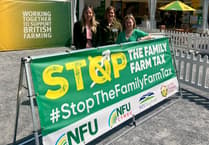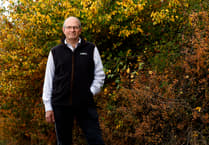Most of the farms and smallholdings in Devon and Somerset are ensuring that their livestock have access to clean drinking water.
In a round of Food Standards Agency-funded visits, Heart of the South West Trading Standards’ rural team took water samples from troughs, buckets and other water receptacles on 21 farms.
Of the 21 businesses tested 20 were compliant – however officers found high levels of lead in the drinking water at one farm.
The visits were carried out to test for heavy metals, salmonella, campylobacter and pesticides.
Access to clean water is vital; unclean water can lead to serious health problems for livestock and affect their reproduction and growth.
Bacteria, such as salmonella, can lead to a number of diseases in cattle; while water contaminated with toxins, such as heavy metals, can lead to long-term health issues.
Additionally, there is a chance that toxins and pathogens in animal drinking water could enter the food chain and contaminate meat, milk and eggs.
Katie Samuels from Heart of the South West Trading Standards Service said: “Poor quality water can also be indicative of broader environmental issues, such as contamination from agricultural runoff, pollution and poor land management practices.
“Carrying out a water sampling project like this allows us the opportunity to identify previously overlooked problems on farms.”
Councillor Simon Clist, Devon County Council’s cabinet member for Trading Standards said: “The aim of this project was to help ensure that the farms that produce the food we eat and the milk we drink are compliant when it comes to the welfare of their livestock.
“Pesticides, high levels of heavy metals and the presence of bacteria such as salmonella or campylobacter can have an impact on animal health and the profitability of their farm.
Councillor Clist, who is a farmer, added: “This wasn’t about catching people out; this is about supporting our farmers who I recognise have enormously difficult jobs.”





Comments
This article has no comments yet. Be the first to leave a comment.